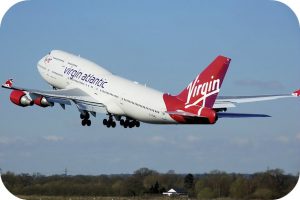 Given that airlines charge thousands of dollars for seats in business class, they try to make the experience as luxurious as possible for their premium passengers. On Etihad Airways, for instance, wealthy fliers can stay in a three-room “residence” that includes a private bathroom and double bed. While other carriers can’t quite match that level of extravagance, they strive to provide passengers with first-class amenities like upscale blankets and fine tableware.
Given that airlines charge thousands of dollars for seats in business class, they try to make the experience as luxurious as possible for their premium passengers. On Etihad Airways, for instance, wealthy fliers can stay in a three-room “residence” that includes a private bathroom and double bed. While other carriers can’t quite match that level of extravagance, they strive to provide passengers with first-class amenities like upscale blankets and fine tableware.
The only problem is that these items don’t remain on planes for long since many passengers tend to swipe them once the flight is over. “Almost anything that is not nailed down will at some point disappear,” said travel analyst Henry Harteveldt. Despite this frequent thievery, though, airlines are usually reluctant to confront sticky fingered fliers. After all, carriers don’t want to embarrass their best customers just because they snatched a fancy glass or memory-foam pillow. Instead, some airlines attempt to stop shrinkage by dropping subtle hints to their passengers. For instance, United Airlines uses its in-flight menu to advise fliers on which items they can take home and which ones they can purchase in the company’s online store.
Not all air carriers share this same concern for their stuff, though. Back when passengers were allowed to smoke on flights, American Airlines made ashtrays inscribed with the message “formerly the property of American Airlines.” In a more contemporary example, Virgin Atlantic recently realized that passengers kept stealing sets of their funky looking salt and pepper shakers. Like American years before, the company decided to stamp “pinched from Virgin Atlantic” on all their shakers. Virgin estimates that 26,700 sets have gone missing this year alone. Along with finding their passengers’ thievery flattering, the company also thinks it could potentially be good for business to have their branded merchandise laying around in customers’ homes. Plus, most in-flight amenities are relatively inexpensive, with high-end pillows and blankets often running for as little as $8 apiece when purchased in bulk. “Airlines want to ensure they have made enough of an investment in their most valuable customers,” said management consultant Oliver Wyman.
Questions:
- Why are many airlines reluctant to confront passengers about stealing items from business class?
- Which do you think is more effective: United’s strategy of discouraging customers from taking items, or Virgin’s strategy of encouraging customers to take what they want?
